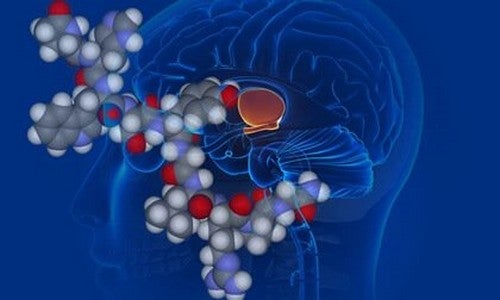Vasopressin or arginine vasopressin is one of the most well-known and important hormones in our body, fundamental to homeostasis, that is, the correct electrolyte balance of our body by retaining and reabsorption of water, sodium and glucose. The type of oligopeptide is also known to act as an analgesic, reducing pain.
Vasopressin is a natural hormone produced by humans and most adults, however, it is best known for the large number of medical uses of the synthetic version, for example, it is common to treat bleeding, heart problems or even when a patient has a serious illness. Infection.
- Within this universe that shapes endocrinology.
- It could be said that few elements perform so many basic tasks and functions for our survival.
- In addition.
- There are curious aspects that we live very often and that we do not relate to this hormone.
- Know that the more stress we experience.
- The less vasopressin our body receives.
The consequence of this effect is therefore very wide: increased water retention, heart problems, kidney disorders . . . it reduces all the internal balance that this oligopeptide promotes. Knowing how it works, what functions it performs and what changes are related to vasopressin can certainly be of great help.
Vasopressin is also used to treat a variety of life-threatening conditions, such as bleeding or septic shock.
Vasopressin was first discovered and described by Turner du Vigneaud in 1950, so far from considering it as a unitary element, it should be noted that it is actually an oligopeptide, i. e. it contains 9 amino acids.
In addition, it is important to know that this hormone is produced in the hypothalamus and is secreted by the posterior lobe of the pituitary gland, which then releases it into our bloodstream from different types of needs.
In addition, out of curiosity, it should be noted that the functioning and release of this oligopeptide are seriously impaired when drinking alcohol. As a study from the University of Maryland explains, there is clear evidence of a failure in the regulation of vasopressin, caused by alcohol consumption. , leading to various disorders.
The functions of vasopressin can be encompassed in two types of well-differentiated processes: homeostatic and social, so in addition to these basic tasks that guarantee internal balance and prevent dehydration to acidosis, it is interesting to know that the antidiuretic hormone has a strategic function. goal in many of our social behaviors and even in cognitive processes. Let’s see below.
This type of oligopeptide promotes the correct electrolyte balance of our body, in addition to promoting the concentration of water, sodium and glucose, is able to maintain an adequate blood volume and a correct venous return.
In addition, vasopressin promotes water retention in the kidneys. In this way, we can better control urination and eliminate waste at all times. If we could not retain these fluids, we would suffer continuous dehydration.
Dr. Balzs Mayer of the National Research Institute in Maryland, USA. The U. S. , conducted a study to show something promising: vasopressin stimulates the formation of red blood cells, in addition, it has been seen to be more potent than erythropoietin.
This finding is encouraging for the development of new treatments for anemia and even for different types of cancer.
Antidiuretic hormone is characterized by a well-known function: increased blood pressure. In addition, studies show that vasopressin is more effective than epinephrine insecholic cardiac arrest, although most of the time it is preferable to use both hormones in combination.
Vasopressin usually acts as a neurotransmitter. It does this when interacting with certain neurons to promote different types of processes. One is pain reduction. In fact, studies like the University of Montreal in Canada explain something interesting.
Vasopressin reduces pain in stressful situations, i. e. when we go through periods of high anxiety and a lot of stress, the application of synthetic vasopressin reduces muscle aches, headaches, etc.
Another effect of vasopressin on our body, and especially on the brain, is improved memory and learning (De Wied and Versteeg, 1993). It is believed that this set of amino acids acts in the hippocampus, favoring the formation of memories.
Vasopressin acts as an intermediary and promotes the process of bonding between mother and child, in addition, it could be found that it also has a very relevant effect on the figure of the father: it increases the desire for protection, care and care during the pregnancy process with the mother and also in the creation with the newborn.
In conclusion, it should be noted that many other functions of vasopressin are currently being studied. In some countries, for example, a type of? Nasal spray?Based on this concentrated hormone to treat amnesia related to addiction processes.
We therefore face a future full of possibilities that implies a much better understanding of this fascinating universe of endocrinology, a process that we will monitor.

